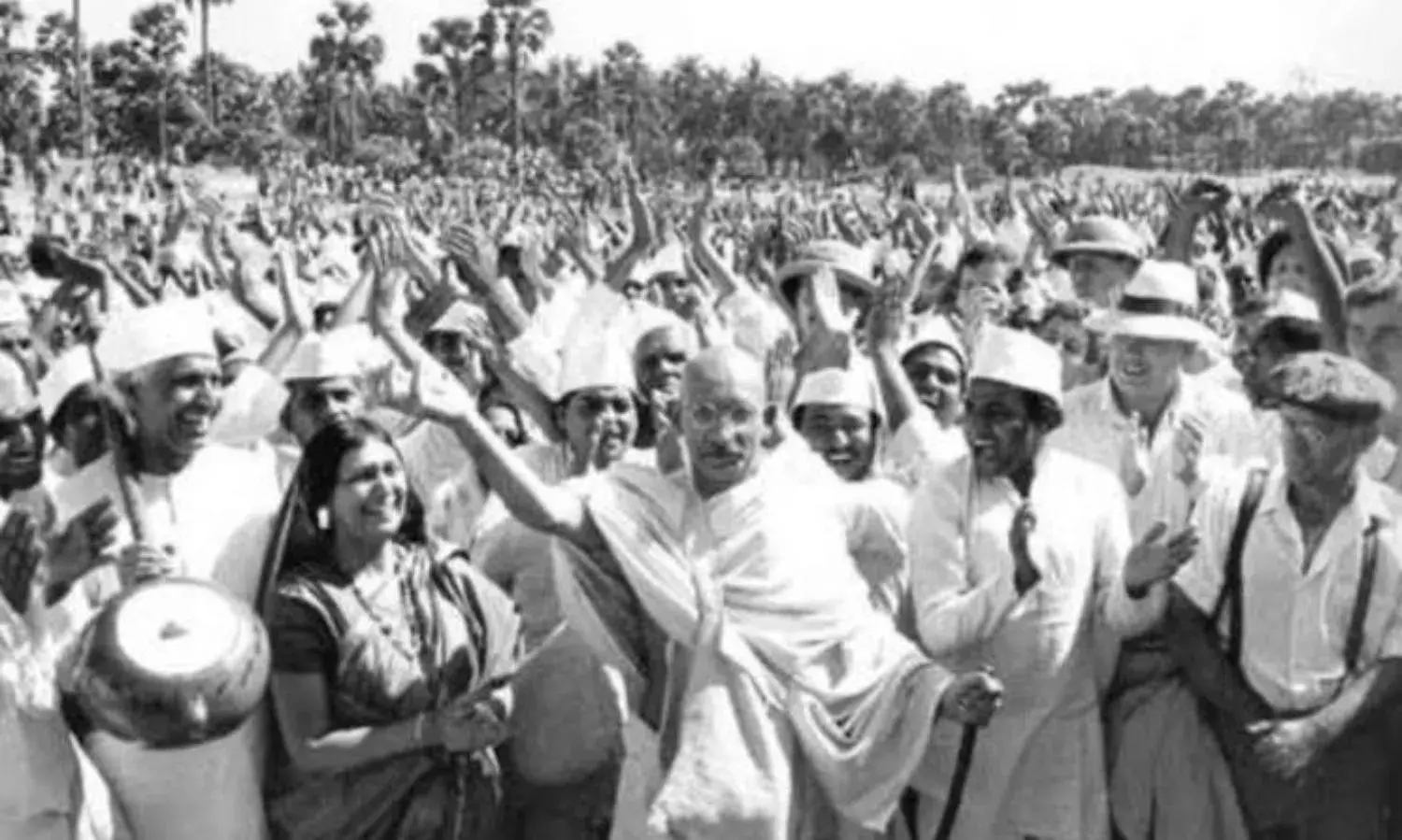'If Gandhi Were Alive, He Would Be at Every Protest Today'
ANANYA SINGH

“I think if he (Gandhi) was alive, he would be at every protest site,” Tushar Gandhi, journalist and great-grandson of Mohandas Karamchand Gandhi told The Citizen on the eve of January 30, Gandhi’s 72nd death anniversary.
With the citizens of the country up in arms against the contentious Citizenship (Amendment) Act, the National Register of Citizens and the alleged first step to implementing both of these, the National Population Register, Tushar Gandhi remembers the iconic leader of the Indian Independence movement, reflecting on what Gandhi would have done were he alive today to witness the nationwide protests.
Gandhi would have actively participated in the ongoing protests, according to Tushar Gandhi. “But if he was alive, I am also confident that we wouldn’t have reached this state… He would have been working to prevent this much much earlier,” he added.
Holding true to his ideals of non-violence, Gandhi “would have endorsed the non violent protests that are happening”, Tushar Gandhi stated. “He would have endorsed the individual statements of displeasure being voiced. He would have created public opinion against the situation and he would also have kept a door open for negotiation,” he told the Citizen. In fact, Gandhi and his ideals remain alive today, having been invoked at protest meetings across the country.
Citizens have taken to the streets to express their opposition to the CAA and NRC. Sloganeering and chanting are widespread, but so are poetry sessions, music, speeches, singing and artwork. Whether it is a 24X7 sit-in protest at Shaheen Bagh or a march in Malegaon, women have come out across the nation to express their dissent and lead the movement along with the youth.
If Gandhi were here today, would he have led the anti-CAA protests himself? Tushar Gandhi believes otherwise, stating that his great-grandfather would have given the responsibility of the protests to the citizens of India instead. “He would have been the iconic leader or the inspiration behind the protests but he would have made the ordinary citizens responsible for protecting the nation as he had done in his Non-Cooperation Movement and in the Quit India Movement,” he told The Citizen.
January 30 is designated as Shahadat Diwas or Martyr’s Day. Today, in remembrance of Gandhi, massive protests have been organised across the country. From Rajghat to Shanthi Van, a “human chain across Delhi” will be built, scheduled to begin at 3:30 pm with the singing of the national anthem taking place at 5:17 pm—the exact time Gandhi was martyred on January 30, 1948 by Nathuram Godse.
Speaking about the significance of the protest, Tushar Gandhi stated, “I don't even care if it’s a mammoth protest or not. Even a few human beings coming together, few concerned citizens coming together and standing up in defiance counts.”
“Maybe it won't be noticed as an event but it will have an impact over all,” he said. “So I think that is the way the protests should develop. I support the idea, I feel that everything possible and everything that an individual is capable of doing from within their comfort zones also is of importance,” Tushar Gandhi added.
Organised by Jan Ekta Jan Adhikar Andolan (JEJAA), with 109 social organisations under its ambit, the human chain will cover Hanuman Mandir, Red Fort, Jama Masjid and Delhi Gate, as per the JEJAA statement released on January 28.
Delhi is not the only city where a human chain will be built. A group of eminent citizens, including Rajmohan Gandhi, Mahadev Vidrohi, Medha Patkar, H.S. Doreswamy, Harsh Mander among others—under the banner ‘We the People of India’—have issued a call for a nation-wide human chain today. The call was endorsed by the Working Group of the All-India Coordination for National Action Against Citizenship Amendment.
The All-India human chains will begin forming from the afternoon and will end at 5:17 pm. The group has also urged lamps or candles to be lit outside every home to commemorate Gandhi’s martyrdom. “The programs will collectively be called Bharat Jodo and the value that will be upheld is “Fraternity” (from the Preamble of the Constitution of India)” reads their press release.
Following a human chain in Jaipur, programs that celebrate “multicultural interfaith music” has been organised at Central Park. Bangalore too, will witness the formation of a “harmony chain” from Town Hall to Mahatma Gandhi Statue after “paying homage to the Mahatma”.
A human chain is scheduled to be formed at Dharna Chowk, Indira Park, Hyderabad at 4 pm. Lawyers in Chennai will venture out on a “Peace and Unity Padayatra” around the Madras High Court this morning, resolving to defend the Indian Constitution.
“Safeguarding the Constitution Rally”, a candle light march organised by Dwarka Collective will also be taken out at 6 pm today from Sector-12, Dwarka “to resist every assault on the constitution including the CAA, NPR and NRC.” A long march is scheduled to take place from Jamia Millia Islamia University to Rajghat. Humari Urdu Mohabbat (HUM) is also organising an evening of “Gandhi in Poetry and Recitation” at Jawahar Bhawan, New Delhi.
Cities and small towns across India will observe a day of marches and cultural programmes in ‘Baapu’s’ memory. “It is very essential in times like this when we feel bereft of iconic leaders, we need to restore the memory of our icons and get inspired by them,” Tushar Gandhi told The Citizen, reflecting upon the protests organised. It becomes even more essential today, “when the idea of India that our founders had envisaged is under such grave threat.”



